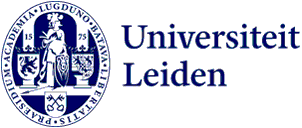
Fieldwork in Leiden
How do the residents of the Kooi neighbourhood in Leiden find living there? What can we do about loneliness? In this extraordinary academic year, students have been conducting all sorts of research, in Leiden. They presented their initial findings and recommendations at a Learning with the City meeting on 14 June.
You don’t have to travel to far-flung places to do your fieldwork. In the Learning with the City project students set to work in Leiden: they conducted research in working-class neighbourhoods like de Kooi or do an internship at a homeless shelter. They are working with residents and non-profit organisations to address societal issues such as loneliness and sustainability. ‘The city will be better, more attractive and more fun for it,’ said Marieke van Haaren, project manager of Learning with the City, at the start of the Presenting with the City meeting (in Dutch). And the students – from the university, the university of applied sciences and vocational training colleges – gain relevant experience. In the field they develop skills, find out more about society and bring that knowledge back to their educational institution. Below is an overview of the projects by the university students and (if available) the videos that they made about them.
Door to door in Slaaghwijk
Psychology student Christiaan Pauw did research together with Portaal housing association into the social resilience of tenants in the Slaaghwijk district. Many people who live there are without work and not everyone can manage or help others. Pauw went knocking on doors with a questionnaire that he himself had developed. How do the residents find the area and are they ready to do their bit to make it better? Pauw hopes that a measuring tool will be developed based on his research that will give a better insight into the well-being and engagement of the residents.
‘Students are working with the people of Leiden to make it better, more attractive and fun place to be’
Anthropologists in Kooi
A group of cultural anthropology students wanted to find out more about the needs of the residents of the Kooi district: what do they think of their neighbourhood and which amenities were lacking? The neighbourhood does have some problems. Teens hanging around can be a nuisance to residents, and both elderly and young people said they feel lonely. The anthropology students came up with various recommendations based on their research. With a good community centre and more activities teens might be less of a nuisance. And older people could have a buddy to help reduce their social isolation. Watch the students’ video.
Research into student loneliness
Many a student feels lonely too. At the initiative of the City and Student thinktank, students researched loneliness among their fellow students. Student who belong to associations can also experience this, says Niels Zijdenbos. Students sometimes have social contacts but miss depth. As loneliness is still somewhat of a taboo, the thinktank wants to start a campaign to bring the problem out into the open. The student-researchers also emphasise the importance of keeping amenities open, such as sports facilities, particularly during the pandemic.
Research into self-reliance in young people
Anthropology student Anaïs Feron researched the experiences of homeless people. For six months she followed and supported young people from the Binnenvest homeless shelter in Leiden. She wanted to find out whether the young people’s personal experiences had made them self-reliant. And whether they were open to professional help. It often depends on confidence, in yourself and others, says Feron.
Research into soup as a binding force
Leiden-Noord is where anthropology student Marleen Kok did her fieldwork. For two months she helped a social team in Leiden-Noord that holds a free ‘soup afternoon’ once a week for the community. Kok helped make soup and also took lots of photos and made a video to bring the project to people’s attention.
The impact of Covid depicted in art
How has life been in Leiden during the pandemic? What has been the social impact of measures such as 1.5m distancing and face masks? This is what a group of honours students researched (in Dutch) led by Professor of Law and Society Maartje van der Woude. In collaboration with the Liquid Society artists platform an artwork will be made based on their findings, which will be installed in Leiden-Noord.
Parenthood in Mors
Anthropology student Dirkje Baris did her fieldwork in the Mors district. She studied how migrant parents find out more about resilient parenting from welfare organisations in the Netherlands. She also gave training herself to this group about the differences between boys and girls. Thanks to this experience she learned much more about what is actually going on, said an enthusiastic Baris. Watch her video.
Text: Linda van Putten
